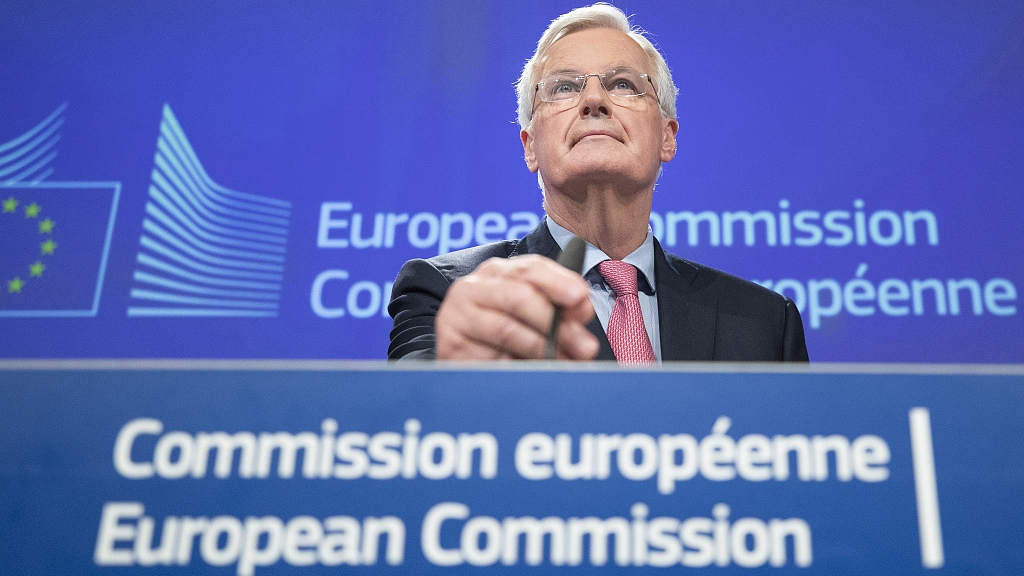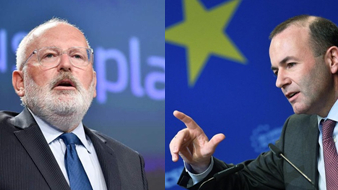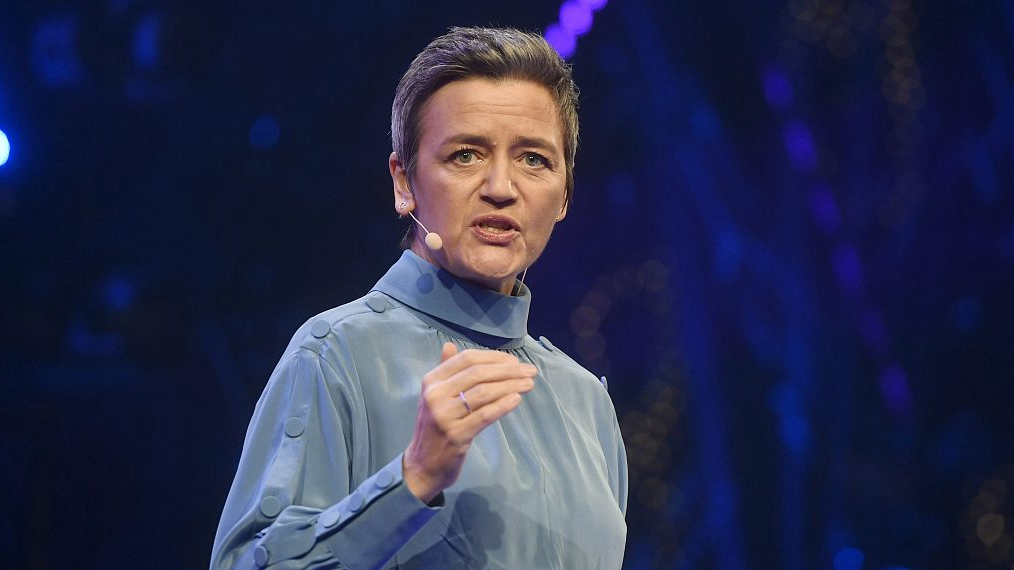
Europe
17:25, 14-May-2019
Who are the contenders for the EU's top jobs?
Updated
17:43, 14-May-2019
By John Goodrich

The top jobs in the European Union (EU) will become vacant over the coming months – and the wrangling to fill them is already under way.
Soon-to-be available positions include the presidencies of European Commission, European Council, European Parliament and European Central Bank as well as the High Representative for Foreign Affairs. All are crucial cogs in determining the political and economic direction of the bloc.
Read more: EU elections explainer
EU leaders have begun discussions over potential nominees, and the lead candidates of the groupings within the European Parliament will debate on Wednesday ahead of elections to the legislature on May 23-26.
Ultimately, the top job picks – and multiple lower rung but still influential positions – are a horse-trade between the member states, and will be made at leadership level via the European Council.
Here are some of the candidates in contention to be European Commission president – the head of the EU's executive – some of whom may also be considered for other senior roles.
The Spitzenkandidaten...
Wednesday's televised Spitzenkandidaten debate pits the lead candidates of the main groupings within the European Parliament against one another. The Spitzenkandidaten process puts the lead candidate of the biggest grouping in pole position to be European Commission president – but there remains a good chance that a high profile outsider (see below) will eventually get the nod.

Frans Timmermans (L) and Manfred Weber (R). /VCG Photo
Frans Timmermans (L) and Manfred Weber (R). /VCG Photo
Manfred Weber (European People's Party): The German MEP is the frontrunner based on the latest polls, with the center-right EPP forecast to be the largest grouping after the elections. In Germany he represents the Christian Social Union, the conservative Bavarian party allied with Angela Merkel's Christian Democratic Union.
Frans Timmermans (Party of European Socialists): The experienced Dutchman, a former foreign minister and representative of the social democratic Labour Party in the Netherlands, is currently vice-president of the European Commission. He has played a central role in investigating alleged breaches of rule of law in Poland and Hungary.
The Green Party and the Alliance of Liberals and Democrats will be among the other parties represented in the debate, but hold little chance of a winning the most seats in the European Parliament elections – a necessity to be the top Spitzenkandidat.
The high profile alternatives…
The European Commission president may, ultimately, not be the lead candidate of the biggest grouping. Some influential EU figures – including French President Emmanuel Macron – are opposed to the Spitzenkandidaten process and the elections are unlikely to be decisive – a broad coalition may be formed in the Parliament – so numerous high profile figures are also in the frame.

EU Competition Commissioner Margrethe Vestager delivers a speech at the Slush 2018 event in Helsinki, Finland, December 4, 2018. /VCG Photo
EU Competition Commissioner Margrethe Vestager delivers a speech at the Slush 2018 event in Helsinki, Finland, December 4, 2018. /VCG Photo
Margrethe Vestager: The high profile Competition Commissioner has no hope of winning the Commission presidency via the Spitzenkandidaten process, but the former Danish deputy prime minister has been campaigning hard for the Alliance of Liberals and Democrats in Europe and is a possible compromise candidate.
Michel Barnier: The EU's Brexit negotiator, a former French foreign minister and two-time European commissioner, lost out to Jean-Claude Juncker in the race for Commission president in 2014. He has made multiple visits to EU capitals in recent months and is thought to be a front-runner if the Spitzenkandidaten process is rejected.
Angela Merkel: The veteran leader has said she will not stand for another term as German chancellor, and has been linked with the presidencies of the Commission and the Council. Buzzfeed reported this week that she did not want to be considered for either role, but rumors will likely continue.
Matteo Salvini: The euroskeptic Italian deputy prime minister has next to no chance of being selected by the European Council, but has said he'd throw his hat in the ring for the Commission presidency if the loose alliance of populists and nationalists he is connected with performs well in the Parliament elections.
Federica Mogherini: The former Italian foreign minister is not expected to seek reappointment as the EU's chief diplomat when her term expires in October, but could she take a different role in the bloc?
Antonio Tajani: The Italian vacates his job as president of the European Parliament this year, and is a true EU insider who could emerge as a compromise pick.
Mark Rutte: The Dutch prime minister is another high profile politician who has been regularly linked with a senior EU role. He has denied an interest.
Christine Lagarde: The head of the International Monetary Fund has been linked repeatedly with big jobs in the EU, and repeatedly ruled out the prospect. Her name will likely come up again.
Others: A who's who of political players could be in the frame for big EU jobs once the European Parliament elections have taken place, with figures such as Dalia Grybauskaite, the Lithuanian president, Enda Kenny, the former Irish leader, and Matteo Renzi, the former Italian prime minister, among those also mentioned.

SITEMAP
Copyright © 2018 CGTN. Beijing ICP prepared NO.16065310-3
Copyright © 2018 CGTN. Beijing ICP prepared NO.16065310-3